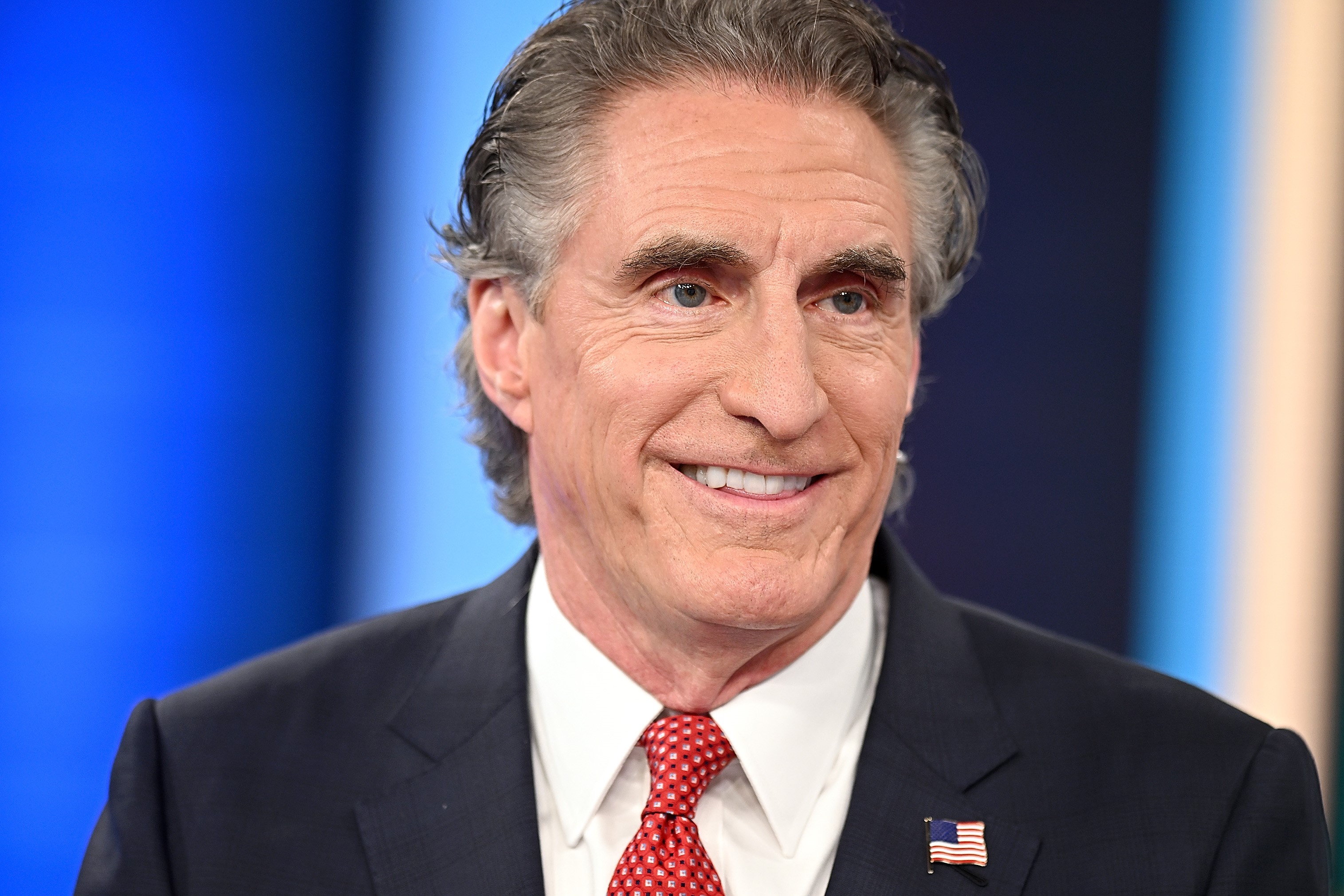Finance
What Makes You Rich? The Truth Behind Financial Wealth

What Makes You Rich? The Truth Behind Financial Wealth
When we hear the word rich, we tend to think of wealth in terms of money, status, and assets. We believe owning a business, earning six-figures or more a year, or having luxurious homes and cars equals success and happiness.
Money is great, isn’t it? It can buy us the things we want and provide us the means to pursue our dreams. Most of us agree that financial freedom is an excellent goal. However, we must keep our priorities in check when it comes to money.
Balance is the key to maintaining a healthy relationship with our finances. Finding a balance between enjoying the pleasures money can provide and being smart with our finances will help us achieve our financial goals without sacrificing our happiness.
While material possessions may bring temporary happiness, true wealth is a much deeper and more fulfilling experience. True wealth is about creating connections with people and experiences that bring joy, happiness, and fulfillment to your life. It’s about finding purpose and meaning in your work and feeling fulfilled by contributing to the world in a meaningful way.
Whether you’re a business owner or someone just looking to improve your financial situation, let’s look at what really matters when it comes to financial wealth:
1. Relationships
People surrounded by positive relationships and a supportive community are happier and healthier. Strong relationships can help you build your business and expand your networks, leading to more opportunities and financial success. Investing your time and energy into your relationships can lead to long-term nourishment that transcends financial gains.
2. Education
Investing in yourself is one of the smartest financial decisions you can make. Education doesn’t always mean college degrees or advanced courses, though those can be valuable. It can also mean learning about your business or industry, exploring new ideas, and networking. If you can add value to your skills, you’ll inherently become more valuable to the world. The more value you offer, the more you will be paid for your services.
3. Purpose
Discovering your purpose is an essential step toward achieving financial success that lasts for the long haul. A clear sense of purpose guides you toward a meaningful life that inspires and motivates you to work smarter and harder than ever before. By knowing what you want to accomplish in life, you can focus your energy on what truly matters and avoid the distractions that hold you back.
4. Health
Without your health, it’s challenging to achieve anything long term. Ensuring your health is a top priority can help you build the stamina and endurance you need to run a successful business or career. Maintaining your physical, emotional, and mental health through proper diet, exercise, rest, and relaxation will help you avoid burnout and set you up for long-term success. Your health is one of the most valuable assets you have.
5. Mindset
How you think and see the world can significantly affect your financial situation. Positive thoughts and a growth mindset can lead to a more positive financial outcome. At the same time, negative thinking can lead to roadblocks and self-doubt. A positive and growth-centred mindset will allow you to approach challenges with determination and resilience, ultimately leading to expanded opportunities and success.
The bottom line is that the true definition of being rich is far more comprehensive than just having a lot of money to our names. It relies on various aspects of life, work, and personal development. When we improve in these different areas, we’ll find that our financial success will inevitably follow.
As a business owner, focusing on these core areas can help lead to lasting success, and as a person, you’ll find that the true richness of life goes beyond dollars and cents. Invest in your health, relationships, education, mindset, and sense of purpose to position yourself for long-term success.

Finance
South Korea braces for Trump’s policies with biggest-ever export finance support

SEOUL (Reuters) – South Korea pledged on Monday a record amount of financing support for exporters to mitigate any negative impact from changes in U.S. trade policies as Donald Trump was poised to be sworn in for his second presidency.
The government plans to provide 360 trillion won ($247.74 billion) worth of policy financing to exporting companies through state-run banks and institutions this year, according to a statement released by the finance ministry.
“There are concerns that external uncertainty will be heightened under the incoming U.S. administration and adversely affect exports,” the ministry said.
The ministry said it would also boost insurance support to guard against foreign exchange volatility to 1.4 trillion won this year, from 1.2 trillion won last year, and spending on government projects, such as trade fairs and delegations, to 2.9 trillion won from 2.1 trillion won.
Sectors particularly under threat of new U.S. policies are semiconductors and rechargeable batteries, the ministry said, whereas defence, nuclear energy and shipbuilding sectors are seen as more promising because of room for cooperation with the United States.
U.S. President-elect Trump, who takes office later on Monday, has pledged to impose stiff tariffs on major trading partners, such as Mexico, Canada and China, which are also expected to affect South Korean companies running factories in those countries.
Economists say there are worries that the Trump administration will introduce trade policies against South Korea too, after Asia’s fourth-largest economy earned a record-high surplus of $55.7 billion in trade with the U.S. in 2024, up 25.4% from 2023.
The Korea International Trade Association, South Korea’s biggest group of exporting companies, projects export growth to slow to 1.8% this year. Last year, South Korea’s exports rose 8.1% to a record high of $683.7 billion, as sales to the U.S. rose 10.4%.
($1 = 1,453.1500 won)
(Reporting by Jihoon Lee; Editing by Shri Navaratnam)
Finance
2025 World Economic Forum in Davos: What to watch
The 2025 World Economic Forum kicks off its annual meeting from Davos, Switzerland, on January 20, 2025. This year’s theme is “Collaboration for the Intelligent Age.” Some of the world’s top business leaders will be there, and Yahoo Finance will speak with them. Executive Editor Brian Sozzi and Senior Reporter Jennifer Schonberger share what investors need to be watching from the landmark event.
Want to learn more about Davos? Check out What is Davos? Here is what you need to know.
Finance
How Financial Planning Has Got The Story All Wrong: Insights From StoryBrand’s Donald Miller

“Nobody wants to hear your story, they want to be invited into a story,” Donald Miller told me, in a recent interview about his new book, Building A StoryBrand 2.0.
That’s it. That’s how financial planning—or perhaps more accurately, financial planners—have got the story all wrong. And regardless of the type of business that you’re in, I’m betting that the same holds true.
What’s your story?
We’ve made ourselves, and/or our solutions, the main character in the narrative of our client’s financial planning, rather than ceding that role to the natural actor, our client.
This wise counsel comes from the StoryBrand guy, Donald Miller, and Miller’s story deserves attention because it’s instructive. He’s not the first to talk about how to use narrative theory in branding and marketing, but it is safe to say he’s done the best job of telling us precisely how to use stories to help people better understand our businesses. And it’s not by telling our story, but by helping others to see theirs.
This is likely because Miller isn’t, or wasn’t, a marketing guru, but a practitioner. An author. Before writing StoryBrand, Miller had published seven books that fit into the memoirist category, including one of my all-time favorite titles, Blue Like Jazz. But after finding success in that genre, Miller says, “I ran out of books to write,” so he began, “an exercise in curiosity” to explicate how narrative structures work and how to use that to clarify a business’s message.
And the big takeaway? As businesses, the story isn’t about us; it’s about those we serve.
StoryBrand 1.0
In the original Building a StoryBrand, Miller shares the SB7 framework—the seven plot points in every great story, whether it’s a novel, TV show, commercial, epic movie, or yes, a business or brand. And it doesn’t take more than a second glance to see where we go wrong as business owners or developers.
Where do you find yourself in this plot?
From Star Wars to Hunger Games to Top Gun: Maverick to Apple, Miller shows us how this plotline plays out in every great story and iconic brand. But nobody dreams of winning Best Supporting Actor as a kid, so we naturally default to jumping into the cockpit and calling ourselves Maverick.
And there is the fatal flaw we commit, making it too much about us. Our services, processes, and accolades—all of which matter, but only to the degree they serve the protagonist, the client, and their story.
The good news is that we play a vital role in this story—it’s just not the starring role, and the sooner we accept our rightful supporting role, the sooner we can better serve more clients. And everything becomes crystal clear when we see it that way—especially as financial advisors.
StoryBrand Financial Planning
Our clients are the main character, the hero. Our job is to get to know them well enough to understand their problem or challenge, and then we can settle into our rightful role as the client’s guide.
And there’s no better metaphor for the posture of all truly great financial advisors, by the way, than guide. We teach, but we’re not teachers who have a necessarily condescending stance toward their students. We navigate the technical, but we are not technicians who often get stuck down rabbit holes of specialization. We consult, but we’re not consultants who diagnose, recommend, and then walk away, leaving a hefty bill in their wake. We persuade, but we’re not salespeople who are driven more by transactions than transformations.
Instead, we are guides for whom experience, wisdom, and the skills of teaching, specializing, consulting, and persuading are all prerequisites.
Then comes planning, a process best navigated in collaboration with our clients. Miller also clarifies here that the plan should be delivered “in the form of baby steps,” a truth we’ve learned from the field of behavioral finance. This, too, contrasts with how most of us learned financial planning. Yet while great financial planning must be comprehensive in its scope, great financial plans must be modular, lest they overwhelm and result in inaction.
Here’s where the skills of persuasion come in handy, in calling our clients to action—actions of their own choosing and architecture—and providing the pivotal role of accountability. We grossly underestimate this as part of our role, perhaps because we love the creative planning at the center of our work. But here again, we are reminded that the plan is no more the hero than we are—and the best unimplemented plans in the world are utterly worthless unless clients take action.
Said action can result in success—Yay!—but plans succeed to varying degrees, and circumstances often change. Some plans even fail. Enter the plot twist, when new circumstances or suboptimal implementation allows us to re-engage the perpetual cycle of story all over again, as we address a new problem or challenge and strive for success anew.
And please remember, the best movies have numerous plot twists. If you’ve already run through Plan A to B, C, or even Z, it only makes your story more compelling.
StoryBrand 2.0 – The Controlling Idea
So, StoryBrand 1.0 does an amazing job helping us identify our proper role and re-write the story. I also asked Miller what was new for readers in StoryBrand 2.0, and there’s another gem that could turn our marketing on its head: the controlling idea.
He writes, “Certainly a story can present multiple ideas, and those ideas are sometimes subjective, but very few stories are commercially successful if the plot is up for interpretation.” Hmm. Can you give us an example?
“If our controlling idea involves a lost dog returning home to his family, who realize how much they loved the previously neglected dog,” says Miller, “we should not include too many scenes about a food critic attempting to start their own restaurant.”
The controlling idea, then, is the main plotline in a nutshell, which isn’t any bigger than a run-on sentence and may be much smaller. StoryBrand 2.0 describes the controlling idea of the classic Lion King plot as “A young lion must gain the confidence necessary to confront his evil uncle, who murdered his father, so that he can take his rightful place as king of the jungle and return order and life to his homeland.”
Meanwhile, Miller strategized with a client who owned a gym franchise and was struggling to differentiate from all the other gyms out there. The gym’s unique feature was targeted resistance training—20-minute trainer-led sessions twice per week—for those who didn’t have time to live at the gym. The essence of the controlling idea ended up being distilled all the way down to three words: “twenty minutes, twice.”
Bang. Then, once you’ve got your controlling narrative for your business and brand, the discipline required is to run 100% of your messaging through that singular lens. If it builds on that narrative, great. If it distracts, it’s out.
The question StoryBrand 2.0 leaves us with, then, is, “Have you defined a controlling idea?”
StoryBrand.Ai
And considering the answer for most is some version of “No,” the biggest new addition to the StoryBrand script isn’t even contained in the newly revised edition of the book—it’s a website and tool, StoryBrand.Ai, which I have trialed and must confess left me jaw dropped.
In a matter of minutes, StoryBrand.Ai delivers a brand script, tagline, product service or name, description, packaging copy, website wireframe, lead generator ideas, lead-generating PDF, domain name suggestions, sales emails and talking points, a compelling one-liner, video scripts, social media post ideas and captions, a brand or product story, and nurture emails. Not bad for $39 per month.
The goal of all of it, though, must be remembered, in what I believe is the “controlling idea” of StoryBrand itself, and the quote from Donald Miller that sparked this post: “Nobody wants to hear your story, they want to be invited into a story.”
How can you apply that wisdom in your business or practice?
-

 Science1 week ago
Science1 week agoMetro will offer free rides in L.A. through Sunday due to fires
-
/cdn.vox-cdn.com/uploads/chorus_asset/file/23935558/acastro_STK103__01.jpg)
/cdn.vox-cdn.com/uploads/chorus_asset/file/23935558/acastro_STK103__01.jpg) Technology1 week ago
Technology1 week agoAmazon Prime will shut down its clothing try-on program
-
/cdn.vox-cdn.com/uploads/chorus_asset/file/25826211/lorealcellbioprint.jpg)
/cdn.vox-cdn.com/uploads/chorus_asset/file/25826211/lorealcellbioprint.jpg) Technology1 week ago
Technology1 week agoL’Oréal’s new skincare gadget told me I should try retinol
-
/cdn.vox-cdn.com/uploads/chorus_asset/file/25832751/2192581677.jpg)
/cdn.vox-cdn.com/uploads/chorus_asset/file/25832751/2192581677.jpg) Technology5 days ago
Technology5 days agoSuper Bowl LIX will stream for free on Tubi
-

 Business6 days ago
Business6 days agoWhy TikTok Users Are Downloading ‘Red Note,’ the Chinese App
-
/cdn.vox-cdn.com/uploads/chorus_asset/file/25835602/Switch_DonkeyKongCountryReturnsHD_scrn_19.png)
/cdn.vox-cdn.com/uploads/chorus_asset/file/25835602/Switch_DonkeyKongCountryReturnsHD_scrn_19.png) Technology3 days ago
Technology3 days agoNintendo omits original Donkey Kong Country Returns team from the remaster’s credits
-

 Politics1 week ago
Politics1 week agoTrump to be sentenced in New York criminal trial
-

 Culture2 days ago
Culture2 days agoAmerican men can’t win Olympic cross-country skiing medals — or can they?


:quality(70)/d1hfln2sfez66z.cloudfront.net/01-31-2024/t_f14683c19a7d4a84833935660b3fb7e4_name_file_960x540_1200_v3_1_.jpg)
















